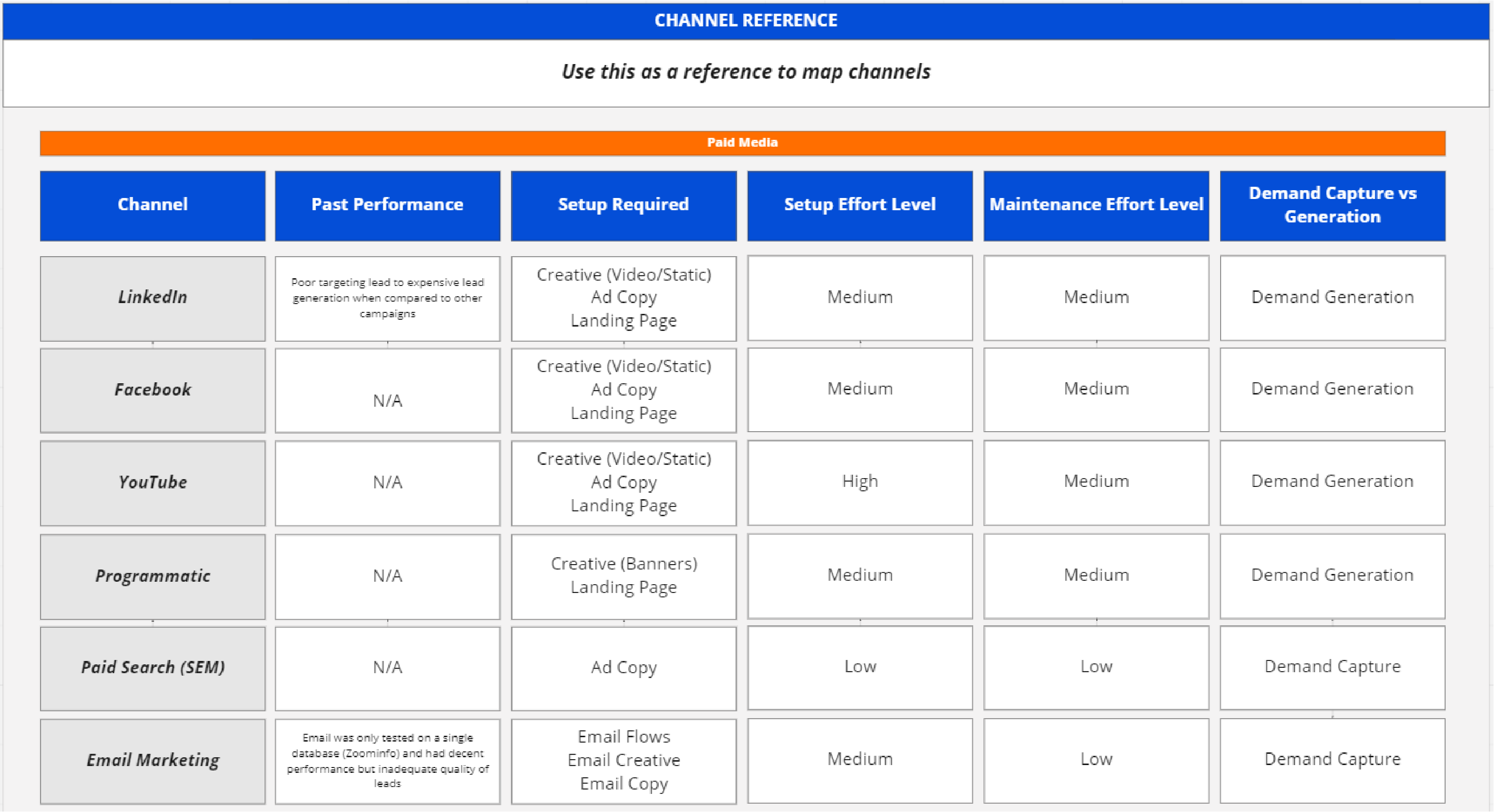Prioritizing the Right Channels
An omnichannel campaign strategy with relevant content is key to reaching customers where they are

To assess the ability of a channel to meet your brand’s objectives, consider the following components
How much of the target audience will be exposed to the channel?
How do we pivot on the content if the deliverable is underperforming or new information is available?
Is the channel suitable for messages, whether simple or complex? Does the target audience see the information as factual and reliable?
How much can the message be tailored for a specific audience/segment of customers via the chosen channel?
Paid media channels require the purchase of ad space to promote your brand to larger audiences
Examples: Search engine marketing (SEM), also known as Pay-Per-Click advertising (PPC), Display ads, Paid social
-

Closer to traditional marketing, whereby you pay a third party to broadcast your message to other individuals.
-

Can work in tandem with earned & owned media to help an online business grow.
-

One of the quickest ways to drive traffic.
-

The results of your paid content will be easier to track than organic content.
-

Paid promotions can help ensure your content — whether a promotion or an informative video aimed at establishing you as a thought leader — gets picked up, shared around and goes to the right influencers.
Owned media comprises digital marketing channels that a company exercises complete control over, such as their branded website, emails and social media.
Improving upon and leveraging owned media efforts often increases the effectiveness of paid media and earned media as well.
Owned media includes:
- Email marketing campaigns run with Marketo
- Web content on bd.com or other owned websites, can include product pages, campaign landing pages, video content, etc.
- Social media posts including Facebook, LinkedIn and Twitter. User interactions with social media posts, such as shares, comments, and re-posts fall under earned media
Other social media, such as shares, comments, and retweets, falls under Earned Media
Channel and content strategy is defined by combining customer insights, data and experiences to kick-start experimentation

Step-by-Step Guide

Develop a channel strategy:
- Based on insights across customer research, generate a list of channels where customers can be accessed
- If available, review previous channel performance benchmarks and compare against metrics required to accomplish campaign goal
- Based on the model, decide the channel mix required for experimentation (e.g., if out of five channels selected based on customer insights, only two channels are enough to accomplish the campaign goal, make a trade-off decision for the most-likely channels to manage budget)

Create a content strategy:
- Collect all previous content that can be re-used, make edits as required to match personas and required messaging; if previous content does not match personas or messaging, disregard
- Write-down value proposition messaging that would answer to each persona’s pain points and needs
- For each persona, brainstorm potential content across multiple medium (e.g., video, text)

Engage content partners:
- Provide a summarized view of the channel and content strategy to the media and creative partners (in-house or agencies) for further input and refinement.
and learn more about their content and channel strategy.